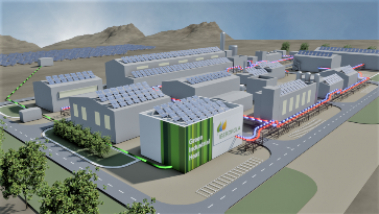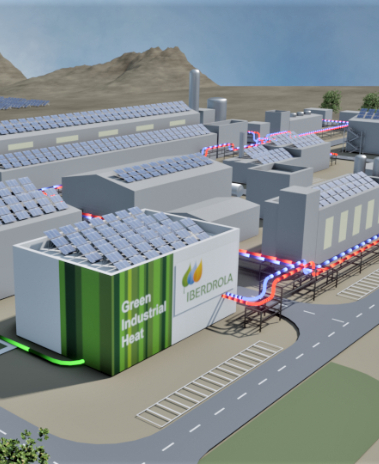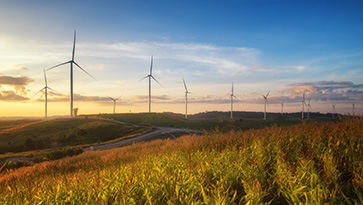#decarbonisation
Decarbonisation is the process of reducing the amount of carbon, mainly carbon dioxide (CO2), sent into the atmosphere. Its objective is to achieve a low-emission global economy to attain climate neutrality via the energy transition.
-
Iberdrola launches Carbon2Nature (C2N) with the mission of developing high-impact nature-based solutions projects that reduce the global carbon footprint, improve biodiversity, and promote a sustainable economy. The company was born out of...
-
Facebook Iberdrola launches Carbon2Nature to reduce the global carbon footprint through nature-based solutions
-
Twitter Iberdrola launches Carbon2Nature to reduce the global carbon footprint through nature-based solutions
-
Linkedin Iberdrola launches Carbon2Nature to reduce the global carbon footprint through nature-based solutions
-
Whatsapp
Green ammonia, also known as renewable ammonia, is a form of ammonia that is produced using renewable energy sources and which is proposed as a sustainable, emission-free alternative with a multitude of applications in industry and other sectors.
-
-
Decarbonisation of industry through electrification is essential to tackle climate change, use energy more efficiently and foster innovation. This is a crucial step towards a more sustainable and resilient future, so let's look at the best options to achieve this by assessing the various alternatives.
Iberdrola joins the Kyoto Group as a strategic investor and business partner in an alliance to accelerate the decarbonisation of heat in industrial processes with Heatcube, Kyoto's thermal energy storage solution . The energy company will invest...
-
Iberdrola has taken a definitive step forward in the establishment of the green hydrogen maritime corridor between Spain and the Netherlands. The Executive Chairman of Iberdrola, Ignacio Galán , received His Majesty the King of the...
-
Facebook The King of the Netherlands accompanied by Ignacio Galán visits the main green hydrogen production plant in Europe
-
Twitter The King of the Netherlands accompanied by Ignacio Galán visits the main green hydrogen production plant in Europe
-
Linkedin The King of the Netherlands accompanied by Ignacio Galán visits the main green hydrogen production plant in Europe
-
Whatsapp
To make sure that the location of wind farms is the one that allows us to make the most of wind energy, a wind measurement study must be carried out. We tell you how it is done, why it is so important and the latest technological developments in this regard.
-












